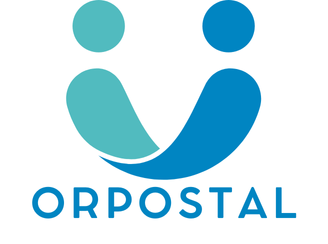Unlocking Efficiency: The Role of AI Tools in Transforming the UK’s Public Sector
The integration of artificial intelligence (AI) into the public sector is revolutionizing the way government services are delivered, making them more efficient, accessible, and citizen-centric. In this article, we will delve into the various ways AI is transforming public services in the UK, the initiatives driving this change, and the potential long-term benefits.
The Current State of Public Sector Services
Traditionally, public sector services have been plagued by inefficiencies, from lengthy administrative tasks to limited access to information. For instance, a report by Microsoft highlights that every public sector employee in the UK spends over eight hours per week managing data and performing routine administrative tasks. This not only hampers productivity but also compromises the quality of service provided to citizens[2].
Also read : Unraveling the secrets of anime mystery boxes: a guide
The Impact of AI on Public Sector Efficiency
AI is changing this landscape by automating routine tasks, enhancing decision-making, and improving service delivery.
Automation of Administrative Tasks
Generative AI-powered assistants and chatbots are being deployed to handle common queries and tasks. For example, the New York City Department of Environmental Protection uses Azure OpenAI-based chatbots to resolve IT and human resources-related issues, providing 24/7 support and eliminating after-hours response costs[2].
This might interest you : Unlocking the Future: Elevating the UK Real Estate Purchase Journey with Virtual Tours
- Automate routine administrative tasks
- Provide 24/7 support for common queries
- Reduce administrative workload by over four hours per week per employee
- Save the UK public sector over £17 billion through increased productivity
Enhanced Decision Making
AI tools are enabling public sector employees to make better-informed decisions by quickly interrogating vast volumes of data. This is particularly evident in the use of AI-powered search engines. The UK Government Digital Service (GDS), in partnership with Google Cloud and Kin + Carta, has launched a new AI-powered search engine for GOV.UK, which has shown a 14% increase in users clicking through to relevant results. This enhances the accuracy and accessibility of information, making it easier for citizens to find what they need[4].
Improved Service Delivery
AI is also transforming the way public services are delivered, making them more accessible and user-friendly. For instance, the City of Kelowna in Canada has implemented an Azure-based AI assistant that guides citizens through various non-emergency municipal services, including planning permission processes. This eliminates the need for in-person appointments and provides quick, plainly written or spoken guidance[2].
Initiatives Driving AI Adoption in the Public Sector
Several initiatives are driving the adoption of AI in the UK’s public sector, aimed at ensuring the safe and responsible use of this technology.
UK Government’s AI Assurance Platform
The UK government has launched an AI assurance platform to help businesses and public sector organizations identify and mitigate the risks associated with AI. This platform acts as a one-stop shop for AI assurance, bringing together existing tools, services, frameworks, and practices. It includes guidance on impact assessments, data bias reviews, and the introduction of an “AI Essentials toolkit” to distill key governance frameworks and standards into comprehensible guidelines for industry[1][3].
- Provide a one-stop shop for AI assurance
- Include guidance on impact assessments and data bias reviews
- Introduce an "AI Essentials toolkit" for industry
- Embed AI assurance techniques in government procurement policy
AI Management Essentials (AIME) Self-Assessment Tool
The Department for Science, Innovation and Technology (DSIT) is developing the AIME self-assessment tool to support private sector organizations in implementing responsible AI management practices. This tool will be accessible to a broad range of organizations, including SMEs, and will help public sector buyers make informed procurement decisions involving AI[1][3].
Systemic AI Safety Grants Programme
The UK’s AI Safety Institute (AISI) is running the Systemic AI Safety Grants programme, providing up to £200,000 in funding to researchers working on making AI safer. This initiative is part of the government’s broader vision to ensure the development and deployment of safe and responsible AI systems[1].
Economic and Social Benefits
The integration of AI in the public sector is expected to have significant economic and social benefits.
Economic Growth
The UK AI assurance market, currently worth over £1 billion, is projected to grow sixfold to around £6.5 billion by 2035. This growth is expected to drive economic benefits, including increased productivity and job creation. As Digital Secretary Peter Kyle noted, “AI has incredible potential to improve our public services, boost productivity and rebuild our economy”[1][3].
Improved Public Services
AI is transforming public services by making them more accessible and efficient. For example, the new AI-powered search engine on GOV.UK has made it easier for citizens to find relevant information quickly, regardless of their digital skills. Minister for Digital Government and AI, Feryal Clark, emphasized, “Our new AI-powered search engine delivers faster, more relevant results and makes it easier for everyone to find what they need”[4].
Challenges and Future Directions
While the adoption of AI in the public sector is promising, there are challenges that need to be addressed.
Ensuring Safety and Responsibility
The UK government is keen on ensuring that AI systems are developed and deployed safely and responsibly. This involves mitigating risks associated with AI, such as bias and data privacy issues. As Peter Kyle stated, “To take full advantage of AI, we need to build trust in these systems which are increasingly part of our day-to-day lives”[1][3].
Policy and Legislation
Experts argue that while support for AI assurance initiatives is crucial, it must be complemented by legislation that incentivizes the safe, equitable, and trustworthy development and use of AI. Michael Birtwhistle of the Ada Lovelace Institute noted, “To be successful, the assurance market will need to be complemented by legislation that incentivises safe, equitable and trustworthy development and use of AI”[3].
Practical Insights and Actionable Advice
For organizations looking to leverage AI in the public sector, here are some practical insights and actionable advice:
Invest in Digital Skills
Investing in digital skills is crucial for the effective adoption of AI. Public sector employees need to be equipped with the skills to work with AI tools and interpret the data generated by these systems.
Use Case Identification
Identify specific use cases where AI can add value. For example, automating routine administrative tasks or enhancing decision-making processes.
Collaboration with Private Sector
Collaborate with private sector companies that specialize in AI to leverage their expertise and technology. The partnership between the UK GDS, Google Cloud, and Kin + Carta is a prime example of such collaboration[4].
Continuous Monitoring and Evaluation
Continuously monitor and evaluate the impact of AI tools on service delivery. This helps in identifying areas for improvement and ensuring that the benefits of AI are realized.
The integration of AI in the UK’s public sector is a transformative journey that promises to make public services more efficient, accessible, and citizen-centric. With initiatives like the AI assurance platform, AIME self-assessment tool, and the Systemic AI Safety Grants programme, the UK is well on its way to becoming a hub of AI assurance expertise.
As we move forward, it is crucial to address the challenges associated with AI adoption, including ensuring safety and responsibility, and implementing supportive policy and legislation. By doing so, we can unlock the full potential of AI and drive significant economic and social benefits.
| **Initiative** | **Description** | **Benefits** |
|
|---------------------------------------------------------------------------------|
|
| AI Assurance Platform | One-stop shop for AI assurance tools and services | Raises awareness, drives demand, and builds trust in AI systems |
| AIME Self-Assessment Tool | Supports private sector organizations in implementing responsible AI practices | Helps in making informed procurement decisions, supports SMEs |
| Systemic AI Safety Grants | Funding for researchers to make AI safer | Ensures the development of safe and responsible AI systems |
| AI-Powered Search Engines | Enhances search functionality on GOV.UK | Improves user experience, increases accessibility |
| Collaboration with Private Sector| Partnerships with companies like Google Cloud and Kin + Carta | Leverages expertise and technology to improve public services |
In conclusion, the role of AI in transforming the UK’s public sector is multifaceted and promising. As we continue to navigate this digital transformation, it is essential to ensure that AI is developed and deployed in a way that is safe, responsible, and beneficial to all citizens.











